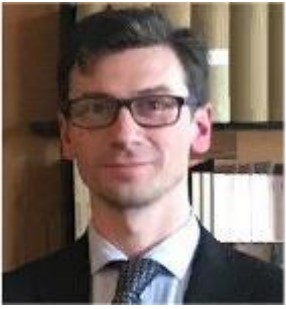

题目:Towards Predictive Two-Phase Flow and Combustion Simulations in Future Propulsion Systems
时间:2019年12月5日 15:00
地点:必赢线路检测中心 F310会议室
报告人:Assoc. Prof. Michele Battistoni (University of Perugia)
邀请人:李雪松 副教授(智能汽车研究所)
Biography
Michele Battistoni is an Associate Professor in the Department o f Engineering at the University of Perugia in Italy. He was appointed Visiting Professor at KAUST (Saudi Arabia) in 2019. He was also appointed Visiting Researcher and Mechanical Engineer at Argonne National Laboratory in Chicago from 2012 to 2014, then, in the summers of 2016 and 2018. His research and teaching interests lie in the areas of energy-thermal-fluid sciences, thermo-fluid dynamics, multiphase flow, CFD modeling, and energy conversion systems, with main applications to engines, advanced fuels and injection systems, bio-derived and alternative fuel sprays and combustion. He serves as SAE session organizer for the Fuel Injection and Sprays sessions, and he is actively involved in the Engine Combustion Network activities where he is leader of the primary atomization topic. He has been invited to give presentations at several Universities and Research Institutes, like Argonne (Chicago), Sandia (Livermore, CA), IFP-EN (Paris), among others. In his early career he also worked at Fiat Powertrain in Turin as a design engineer. Michele Battistoni received his MS and his PhD in Mechanical Engineering from the University of Perugia. He published 30+ journal papers and 40+ peer-reviewed conference papers. His recent interests include high fidelity simulations of two-phase flows for fuel injection systems with heat and mass transfer, advanced ignition systems modeling, spray and combustion modeling in advanced internal combustion engines.
f Engineering at the University of Perugia in Italy. He was appointed Visiting Professor at KAUST (Saudi Arabia) in 2019. He was also appointed Visiting Researcher and Mechanical Engineer at Argonne National Laboratory in Chicago from 2012 to 2014, then, in the summers of 2016 and 2018. His research and teaching interests lie in the areas of energy-thermal-fluid sciences, thermo-fluid dynamics, multiphase flow, CFD modeling, and energy conversion systems, with main applications to engines, advanced fuels and injection systems, bio-derived and alternative fuel sprays and combustion. He serves as SAE session organizer for the Fuel Injection and Sprays sessions, and he is actively involved in the Engine Combustion Network activities where he is leader of the primary atomization topic. He has been invited to give presentations at several Universities and Research Institutes, like Argonne (Chicago), Sandia (Livermore, CA), IFP-EN (Paris), among others. In his early career he also worked at Fiat Powertrain in Turin as a design engineer. Michele Battistoni received his MS and his PhD in Mechanical Engineering from the University of Perugia. He published 30+ journal papers and 40+ peer-reviewed conference papers. His recent interests include high fidelity simulations of two-phase flows for fuel injection systems with heat and mass transfer, advanced ignition systems modeling, spray and combustion modeling in advanced internal combustion engines.
Abstract
Accurate and robust two-phase flow, spray and combustion models, ensuring gridconvergent results, can facilitate predictive simulations of fuel air-mixing and subsequent combustion process in internal combustion engine and advanced propulsion systems. Recent work, based on highlyresolved simulations, aims at removing traditional limitations, increasing the level of spatial and temporal details and providing more insights into the physics of these phenomena. The first part of the talk provides an overview of novel spray Eulerian models, including sub-critical and supercritical regimes with real fluid thermodynamics. Simulations on multi-hole nozzles and sprays will be presented. Results are compared against accurate experimental data, like x-ray radiography and interfacial area data. In a second part, some recent simulations of spark ignition engine combustion will also be presented, relating the effects of standard and advanced ignition systems with the engine stability behavior in lean conditions. Results will complement optical engine imaging data. Details on novel plasma assisted ignition system will be provided. The seminar will conclude with a discussion concerning the challenges with respect to further developing the two-phase and combustion models.
